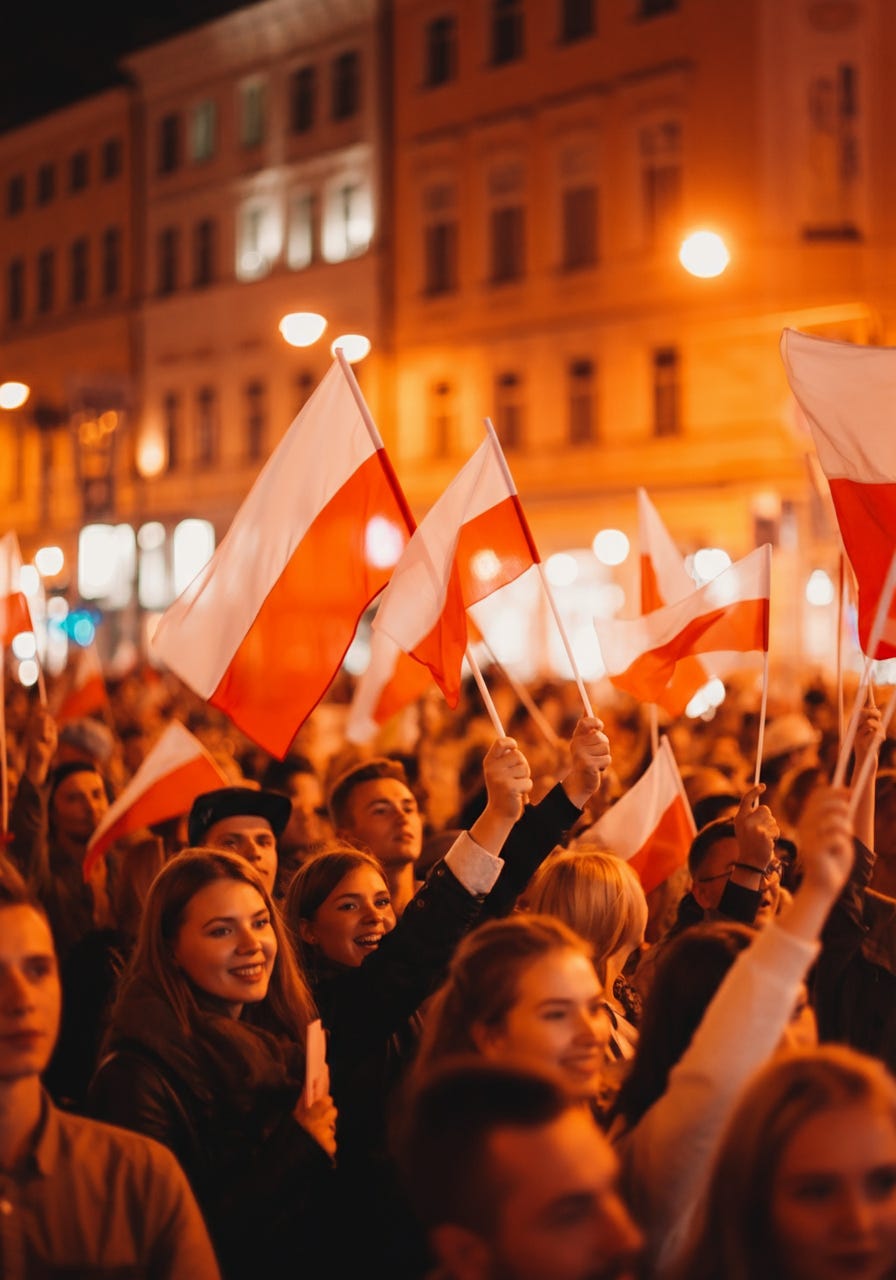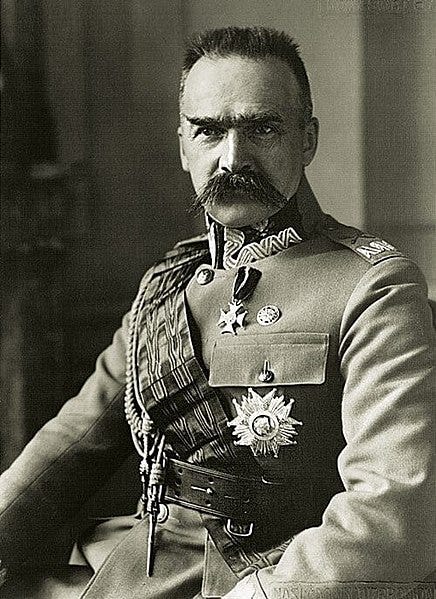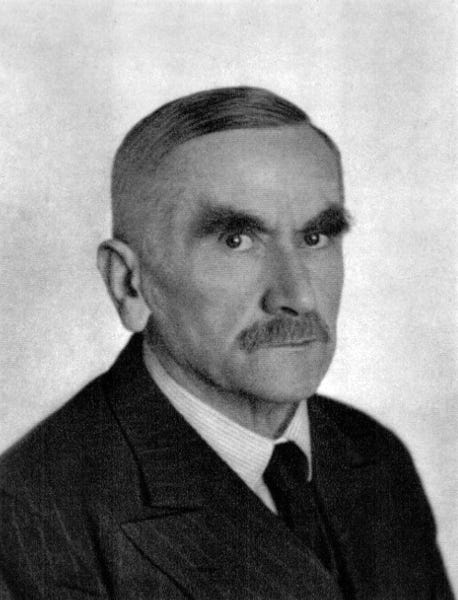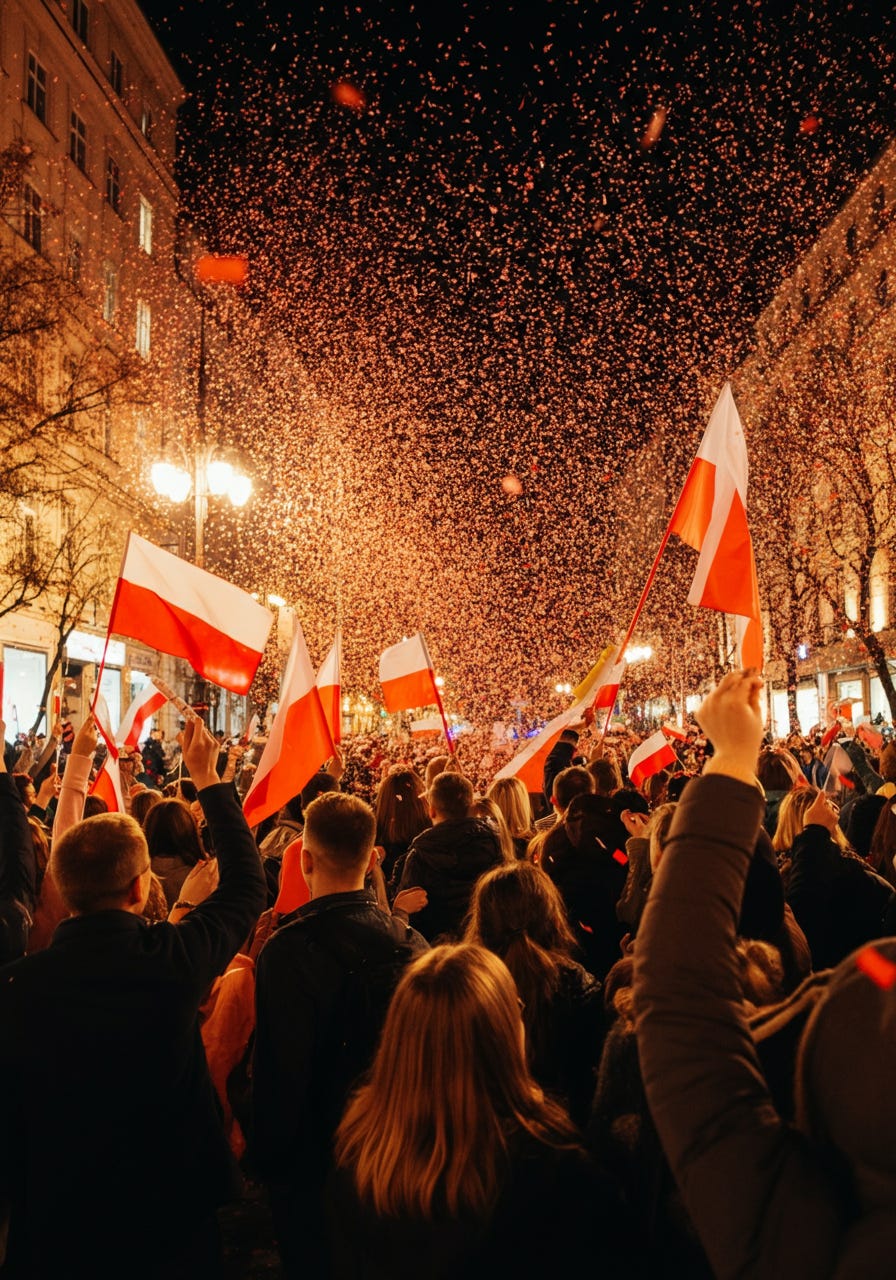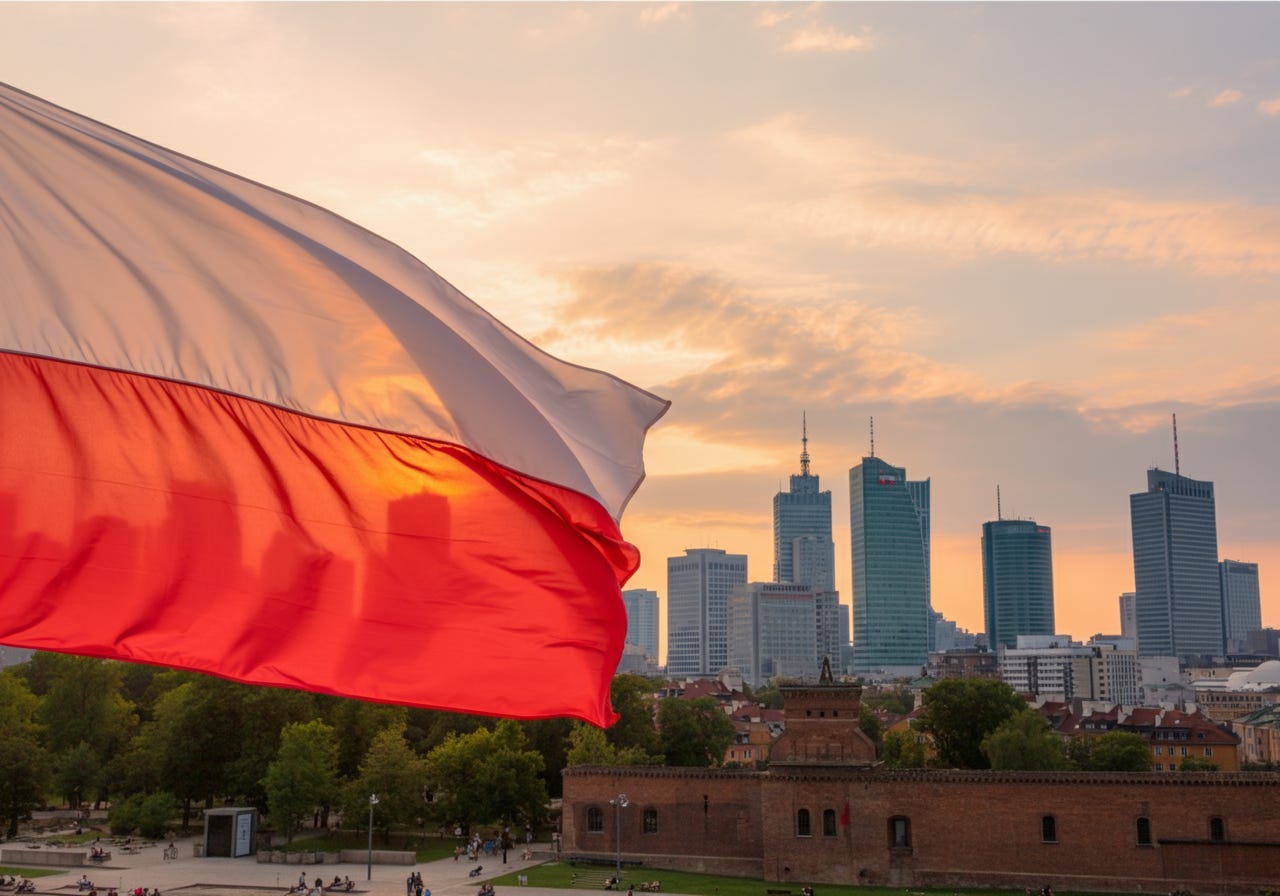Every 11th of November, Poland commemorates its Independence Day, marking its rebirth after 123 years of foreign rule. I aim to show you the historical significance, key figures, and enduring traditions that make this day a cornerstone of Polish identity. From the struggles against partition to the vibrant celebrations of today, let’s look at the inspiring story of Poland's path to freedom and its continued resonance with new generations.
The Partitions: A Nation Divided
The story of Poland's journey to independence begins with the tragic partitions of the late 18th century. In 1772, 1793, and 1795, the once-mighty Polish-Lithuanian Commonwealth was systematically divided among Prussia, Russia, and Austria. These acts not only erased Poland from the map but also sought to suppress Polish culture and identity.
Despite the political erasure, the Polish spirit remained unbroken. Underground movements, secret schools, and cultural societies worked tirelessly to preserve the Polish language, literature, and traditions. This period of division paradoxically strengthened the Polish national identity, forging a deep sense of unity and resilience that would prove crucial in the fight for independence.
1772: First Partition
Poland loses 30% of its territory to Prussia, Russia, and Austria, marking the beginning of its dismemberment.
1793: Second Partition
Prussia and Russia further divide Polish lands, leaving only a rump state under Russian influence.
1795: Third Partition
The final partition completely erases Poland from the map, initiating 123 years of foreign domination.
The Dawn of Independence: A Nation Reborn
The tumultuous events of World War I created a unique opportunity for Poland's resurgence. As the empires that had partitioned Poland crumbled, Polish leaders seized the moment to reclaim their nation's sovereignty. On 11 November 1918, Józef Piłsudski, a charismatic military leader and statesman, assumed control of Warsaw and declared Poland's independence.
This pivotal moment was the culmination of years of struggle and sacrifice. Polish legions had fought on various fronts during the war, strategically positioning themselves to take advantage of the changing political landscape. The date of 11 November is now etched in Polish history as the symbol of national rebirth, marking the end of foreign domination and the beginning of a new era of Polish sovereignty.
Józef Piłsudski: The Architect of Independence
Józef Piłsudski stands as a towering figure in Poland's fight for independence. His journey from a young revolutionary to the father of modern Poland is a testament to his unwavering dedication to the Polish cause. Piłsudski's strategic vision extended beyond military tactics; he understood the importance of diplomacy and nation-building in securing Poland's future.
As the newly independent Poland faced numerous challenges, Piłsudski's leadership was crucial. He worked tirelessly to unify a nation that had been divided for over a century, advocating for a strong, centralised state capable of defending its borders. His legacy continues to inspire Polish leaders and citizens alike, embodying the spirit of patriotism and sacrifice that defines Poland's struggle for independence.
As a military strategist, Piłsudski's expertise was pivotal in securing Poland's independence and navigating the nation through ensuing battles. His role as a visionary leader was equally significant, with his political insight establishing the groundwork for a robust, sovereign Polish state. Moreover, Piłsudski's efforts as a unifier were instrumental in reconciling political differences to forge a cohesive Polish identity.
Roman Dmowski: The Diplomatic Force
While Piłsudski led the military efforts, Roman Dmowski played an equally crucial role on the diplomatic front. As the leader of the National Democracy movement, Dmowski tirelessly advocated for Polish independence in international forums. His eloquence and political acumen were instrumental in gaining support for the Polish cause among Western powers.
Dmowski's crowning achievement came at the Paris Peace Conference in 1919, where he successfully argued for Poland's right to sovereignty and favourable borders. His efforts ensured that international agreements recognised and protected Poland's independence. Dmowski's legacy reminds us of the importance of diplomatic skill and perseverance in the fight for national self-determination.
Political Ideology
Dmowski championed a vision of Poland based on ethnic nationalism and a strong sense of cultural identity.
Diplomatic Achievements
His negotiations at the Paris Peace Conference secured international recognition of Poland's independence and borders.
Lasting Impact
Dmowski's ideas on Polish nationalism continue to influence political discourse in modern Poland.
National Ceremonies and Parades: A Display of Unity
The centrepiece of Poland's Independence Day celebrations is the grand military parade in Warsaw. This spectacular event brings together the armed forces, veterans, and civilians in a powerful display of national unity and pride. The parade route, often passing through historic landmarks, serves as a poignant reminder of the nation's journey from oppression to freedom.
Beyond the capital, cities and towns across Poland host their own parades and ceremonies. These local events allow communities to come together, honouring their specific contributions to the independence struggle. The sight of red and white flags lining the streets, the sound of patriotic songs, and the palpable sense of collective joy create an atmosphere of national solidarity that transcends generations.
Cultural Celebrations: Honouring Heritage
Independence Day in Poland is not just about military parades; it's a celebration of Polish culture in all its richness. Museums and galleries across the country host special exhibitions, showcasing artefacts and artworks that tell the story of Poland's struggle for independence. These exhibitions provide a tangible link to the past, allowing visitors to connect with the experiences of their ancestors.
Music plays a central role in the celebrations, with concerts featuring both classical Polish compositions and contemporary patriotic songs. Theatres stage historical plays and reenactments, bringing pivotal moments in Polish history to life. These cultural events serve a dual purpose: they entertain and educate, ensuring that the younger generation understands and appreciates the sacrifices made for their freedom.
Historical Exhibitions
Museums showcase artefacts and documents from Poland's fight for independence, offering insights into the nation's journey.
Musical Performances
Concerts featuring Polish classical and contemporary music celebrate the nation's rich cultural heritage.
Theatrical Reenactments
Historical plays and reenactments bring key moments from Poland's past to life, educating and inspiring audiences.
Interactive Workshops
Educational programmes engage young people in activities that explore Polish history and traditions.
Preserving History: A Legacy of Resilience
Poland's journey to independence is a testament to the indomitable spirit of its people. Despite over a century of foreign rule and attempts to suppress Polish culture, the nation emerged stronger and more united. This resilience is celebrated and remembered each Independence Day, serving as a source of inspiration for current and future generations.
Preserving this historical legacy is not just about remembering dates and events; it's about understanding the values and principles that guided the Polish people through their darkest hours. Schools play a crucial role, with special programmes and activities designed to engage students with their national history. By connecting young Poles with their past, these efforts ensure that the spirit of independence remains alive and relevant in the modern world.
Schools and institutions emphasise teaching Polish history, particularly the nation's enduring quest for independence. Commemorative practices are also a staple, with regular events and ceremonies paying tribute to key individuals and pivotal moments in Poland's journey towards sovereignty. Moreover, there's a solid commitment to preserving culture, with concerted efforts to keep alive the Polish traditions and artistic expressions that have weathered long periods of suppression. Lastly, there's a conscious effort to bridge history with modernity, drawing parallels between historical struggles and current affairs to ensure that the lessons of the past continue to resonate in the present.
Reflecting on Freedom: The Path Forward
As Poland celebrates its Independence Day, it's crucial to reflect on the meaning of freedom in the modern context. The struggles of the past have given way to new challenges: maintaining national identity in a globalised world, balancing tradition with progress, and fostering unity in the face of political divisions. These challenges require the same spirit of resilience and determination that characterised Poland's fight for independence.
The celebration of Independence Day reminds us that freedom is not just a historical achievement but an ongoing process. It calls on each generation to contribute to the nation's story, preserve hard-won liberties, and build a Poland that honours its past while embracing the future. As we look ahead, the lessons of Poland's journey to independence continue to inspire, guiding the nation towards a future defined by unity, resilience, and unwavering pride in its rich heritage.
Pictures of Piłsudski and Dmowski used from:
https://commons.wikimedia.org/wiki/File:J%C3%B3zef_Pi%C5%82sudski_(-1930).jpg
https://upload.wikimedia.org/wikipedia/commons/6/6c/Roman_Dmowski_1938.png





